
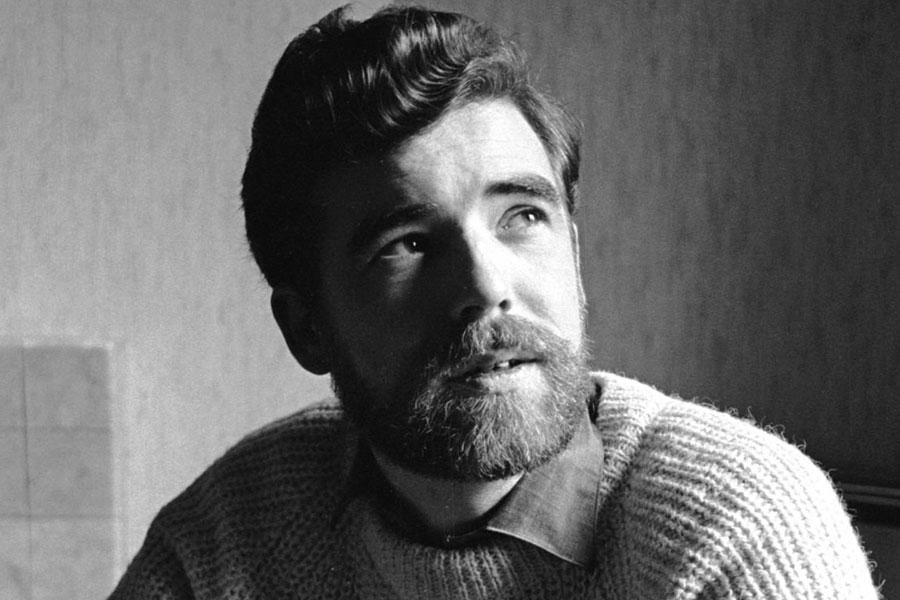
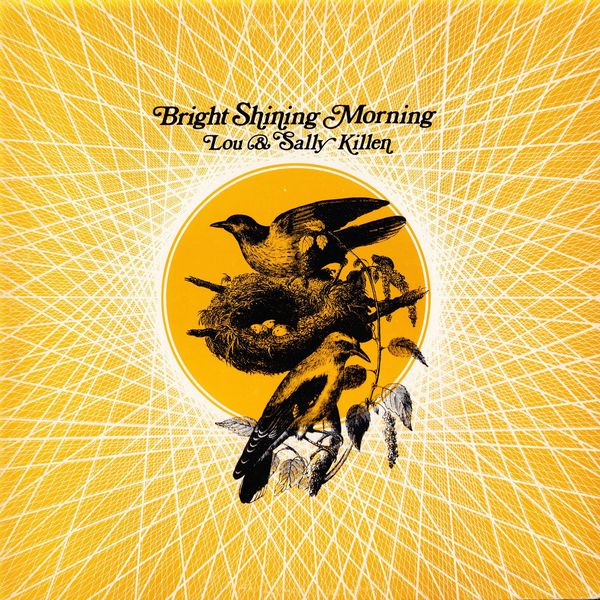 |
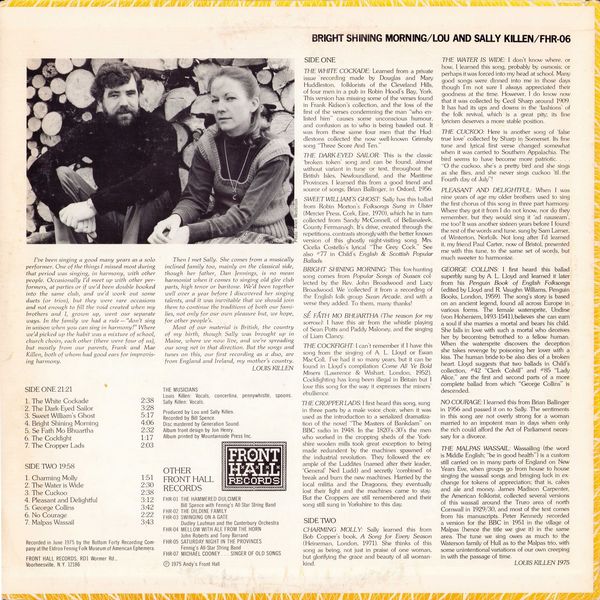
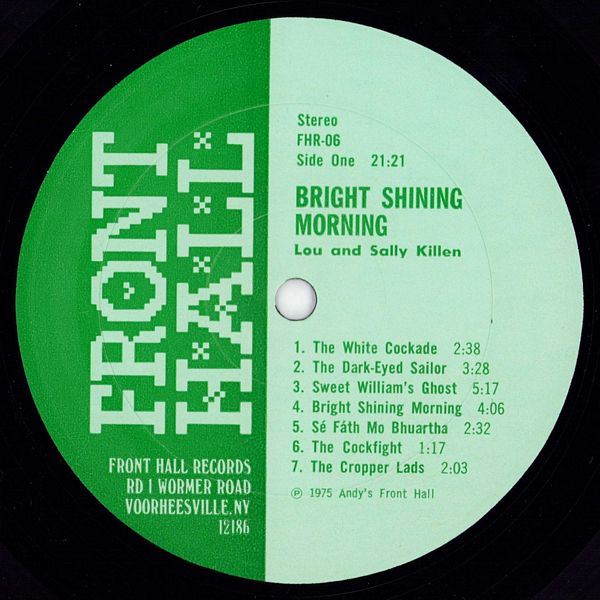
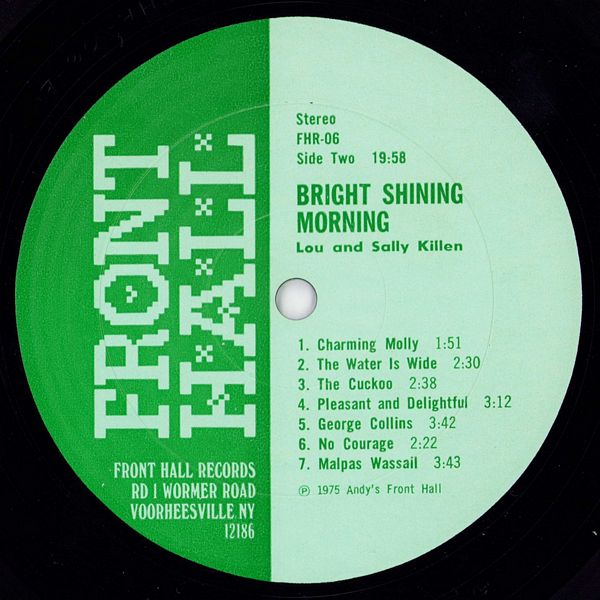 |
Sleeve Notes
I've been singing a good many years as a solo performer. One of the things I missed most during that period was singing, in harmony, with other people. Occasionally I'd meet up with other performers, at parties or if we'd been double booked into the same club, and we'd work out some duets (or trios), but they were rare occasions and not enough to fill the void created when my brothers and I, grown up, went our separate ways. In the family we had a rule — "don't sing in unison when you can sing in harmony!" Where we'd picked up the habit was a mixture of school, church choirs, each other (there were four of us), but mostly from our parents, Frank and Mae Killen, both of whom had good ears for improvising harmony.
Then I met Sally. She comes from a musically inclined family too, mainly on the classical side, though her father, Dan Jennings, is no mean harmonist when it comes to singing old glee club parts, high tenor or baritone. We'd been together well over a year before I discovered her singing talents, and it was inevitable that we should join them to continue the traditions of both our families, not only for our own pleasure but, we hope, for other people's.
Most of our material is British, the country of my birth, though Sally was brought up in Maine, where we now live, and we're spreading our song net in that direction. But the songs and tunes on this, our first recording as a duo, are from England and Ireland, my mother's country.
Louis Killen
The White Cockade — Learned from a private issue recording made by Douglas and Mary Huddleston, folklorists of the Cleveland Hills, of four men in a pub in Robin Hood's Bay, York. This version has missing some of the verses found in Frank Kidson's collection, and the loss of the first of the verses condemning the man "who enlisted him" causes some unconscious humour, and confusion as to who is being bawled out. It was from these same four men that the Huddlestons collected the now well-known Grimsby song "Three Score and Ten."
The Dark-Eyed Sailor — This is the classic 'broken token' song and can be found, almost without variant in tune or text, throughout the British Isles, Newfoundland, and the Maritime Provinces. I learned this from a good friend and source of songs, Brian Ballinger, in Oxford, 1956.
Sweet Williams Ghost — Sally has this ballad from Robin Morton's Folksongs Sung in Ulster (Mercier Press, Cork, Eire, 1970), which he in turn collected from Sandy McConnell, of Bellanaleek, County Fermanagh. It's drive, created through the repetitions, contrasts strongly with the better known version of this ghostly night-visiting song. Mrs. Cicelia Costello's lyrical "The Grey Cock." See also #77 in Child's English & Scottish Popular Ballads.
Bright Shining Morning — This fox-hunting song comes from Popular Songs of Sussex collected by the Rev. John Broadwood and Lucy Broadwood. We collected' it from a recording of the English folk group Swan Arcade, and with a verse they added. To them, many thanks!
Sé Fáth Mo Bhuartha (The reason for my sorrow) — I have this air from the whistle playing of Sean Potts and Paddy Maloney, and the singing of Liam Clancy.
The Cockfight — I can't remember if I have this song from the singing of A. L. Lloyd or Ewan Mac Coll, I've had it so many years, but it can be found in Lloyd's compilation Come All Ye Bold Miners (Lawrence & Wishart, London, 1952). Cockfighting has long been illegal in Britain but I love this song for the way it expresses the miners' ebullience.
The Cropper Lads — I first heard this song, sung in three parts by a male voice choir, when it was used as the introduction to a serialized dramatization of the novel "The Masters of Bankdam" on BBC radio in 1948. In the 1820's-30's the men who worked in the cropping sheds of the Yorkshire woolen mills took great exception to being made redundent by the machines spawned of the industrial revolution. They followed the example of the Luddites (named after their leader, 'General' Ned Ludd) and secretly 'combined' to break and burn the new machines. Harried by the local militia and the Dragoons, they eventually lost their fight and the machines came to stay. But the Croppers are still remembered and their song still sung in Yorkshire to this day.
Charming Molly — Sally learned this from Bob Copper's book, A Song for Every Season (Heineman, London, 1971). She thinks of this song as being, not just in praise of one woman, but glorifying the grace and beauty of all womankind.
The Water Is Wide — I don't know where, or how, I learned this song, probably by osmosis; or perhaps it was forced into my head at school. Many good songs were dinned into me in those days though I'm not sure I always appreciated their goodness at the time. However, I do know now that it was collected by Cecil Sharp around 1909. It has had its ups and downs in the 'fashions' of the folk revival, which is a great pity; its fine lyricism deserves a more stable position.
The Cuckoo — Here is another song of 'false true love' collected by Sharp in Somerset. Its fine tune and lyrical first verse changed somewhat when it was carried to Southern Appalachia. The bird seems to have become more patriotic … "O the cuckoo, she's a pretty bird and she sings as she flies, and she never sings cuckoo 'til the Fourth day of July"!
Pleasant and Delightful — When I was nine years of age my older brothers used to sing the first chorus of this song in three part harmony. Where they got it from I do not know, nor do they remember, but they would sing it 'ad nauseam', me too! It was another sixteen years before I found the rest of the words and tune, sung by Sam Lamer, of Winterton, Norfolk. Not long after I'd learned it, my friend Paul Carter, now of Bristol, presented me with this tune, to the same set of words, but much sweeter to harmonize.
George Collins — I first heard this ballad superbly sung by A. L. Lloyd and learned it later from his Penguin Book of English Folksongs (edited by Lloyd and R. Vaughn Williams, Penguin Books, London, 1959). The song's story is based on an ancient legend, found all across Europe in various forms. The female watersprite, Undine (von Hoheniem, 1493-1541), believes she can earn a soul if she marries a mortal and bears his child. She falls in love with such a mortal who deceives her by becoming betrothed to a fellow human. When the watersprite discovers the deception she takes revenge by poisoning her lover with a kiss. The human bride-to-be also dies of a broken heart. Lloyd suggests that two ballads in Child's collection, #42 "Clerk Colvill" and #85 "Lady Alice," are the first and second parts of a more complete ballad from which "George Collins" is descended.
No Courage — I learned this from Brian Ballinger in 1956 and passed it on to Sally. The sentiments in this song are not overly strong for a woman married to an impotent man in days when only the rich could afford the Act of Parliament necessary for a divorce.
The Malpas Wassail — Wassailing (the word is Middle English; "be in good health") is a custom still carried on in many parts of England on New Years Eve, when groups go from house to house singing the wassail songs and bringing luck in exchange for tokens of appreciation; that is, cakes and ale and money. James Madison Carpenter, the American folklorist, collected several versions of this wassail around the Truro area of north Cornwall in 1929/30, and most of the text comes from his manuscripts. Peter Kennedy recorded a version for the BBC in 1951 in the village of Malpas (hence the title we give it) in the same area. The tune we sing owes as much to the Waterson family of Hull as to the Malpas trio, with some unintentional variations of our own creeping in with the passage of time.
Louis Killen 1975